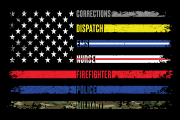Vicodin addiction can often times be hidden in plain sight, making it difficult to identify. Understanding and recognizing the signs, symptoms, risks and more is the first step in the recovery journey.
Understanding Vicodin Addiction
Learn about Vicodin addiction
Vicodin is an opioid painkiller, a combination of hydrocodone, a synthetic opioid, and acetaminophen, a non-steroidal pain reliever. While hydrocodone is the addictive substance in Vicodin, acetaminophen can be dangerous as taking more than recommended can cause liver damage and in dire cases – death. Many medical professionals believe that this drug is overprescribed and overused by physicians in treating pain that could be managed with a lower potency medication. Vicodin is a very effective, yet highly addictive substance. This narcotic works by blocking the pain receptors in the brain leading to pain relief and feelings of relaxation, which are what cause this drug to be so addictive. Over a period of prolonged drug use, an individual develops a tolerance, requiring more and more of the substance in order to achieve the same feelings they initially experienced.
As Vicodin is a central nervous system depressant, it naturally decreases heart rate and respiration, which can be deadly if an overdose occurred. The longer Vicodin is abused, the more negative side effects an individual is likely to experience. People who abuse Vicodin tend to have negative health issues, problems with social relationships, and issues with work or school.
Statistics
Vicodin addiction statistics
Vicodin is the most frequently prescribed opiate in the country. In 2010, there were more than 139 million prescriptions for this drug filled. With relatively easy access to Vicodin, the medication abuse rate has almost quadrupled within the past 10 years. According to the National Survey on Drug Use and Health, in 2009 more than 23 million adults and children over the age of 12 reported using some form of hydrocodone at least once for non-medical purposes. It’s estimated that nearly 2 million individuals across the United States suffer from Vicodin addiction.
Causes and Risk Factors
Causes and risk factors for Vicodin addiction
While an exact cause of addiction has yet to be pinpointed, research has determined that it is a problem that develops as a result of many factors. Some of the more well-known factors include:
Genetic: Many research studies have shown that individuals with family members suffering from addiction problems are at a high risk for developing an addiction themselves. This suggests that a genetic component passed on through family members may be directly related to the cause of a substance addiction. This does not automatically mean that a Vicodin addiction will occur, just that should an individual with this history use this drug, they have a greater predisposition to have problems with addiction to it.
Brain Chemistry: Another theory is that the brain chemistry of addicts may lack the appropriate levels of neurotransmitters that are responsible for happiness and pleasure. When an individual takes a substance like Vicodin they get a sense of pleasure that they are not able to naturally produce, so they continue to use that substance to make up for any brain chemical defects.
Environmental: Children who grow up in an environment surrounded by addiction may come to believe that drug use is acceptable. This can cause them to be more likely to use later on in life due to being desensitized to drug abuse. Additionally, when they face stress in their lives they may to turn to drug abuse in order to help cope with some of the emotional and physical pain. One other environmental cause can be suffering an injury that requires a prescription to deal with the pain. As the medication use is continued, a tolerance builds up and they require more of the drug in order to reduce the pain.
Signs and Symptoms
Signs and symptoms of Vicodin addiction
The symptoms of Vicodin abuse or addiction do not present the same for all individuals. Some of the symptoms are short term symptoms of use, while others are longer range-effects, like addiction and mental decline. Some common signs and symptoms of Vicodin use and abuse include:
Mood symptoms:
- Euphoria
- Anxiety
- Severe mood swings
Behavioral symptoms:
- Memory problems
- Doctor shopping
- Stealing
Physical symptoms:
- Inability to focus
- Weakness
- Dizziness
- Slow heartbeat
- Drowsiness
- Nausea and vomiting
- Itching
- Seizures
- Headache
- Ringing in the ears
- Constipation
- Constricted pupils
Psychological symptoms:
- Obsession with obtaining more Vicodin
- Hallucinations
- Confusion
Effects
Effects of Vicodin addiction
The long-term effects of Vicodin abuse and addiction can range from minor annoyances to severe complications such as death, which is why prompt and effective treatment is necessary. Long-term consequences of Vicodin abuse include:
- Liver damage or failure
- Jaundice
- Urinary system issues
- Relationship problems
- Financial issues
- Trouble with school
- Loss of job
- Incarceration
- Social isolation
- Neglect of family
- Coma
- Death
Withdrawal Effects
Withdrawal effects of Vicodin addiction
The unpleasant effects of Vicodin withdrawal can quickly set in after an individual abruptly stops taking the drug or if the dosage is reduced. It is due to these unpleasant side effects of withdrawal that many addicts are afraid to start the recovery process. Typical withdrawal symptoms include:
- Intense cravings
- Diarrhea
- Insomnia
- Depression
- Dilated pupils
- Intense sweating
- Runny nose
- Chills
- Agitation
- Irritability
- Bone pain
- Aches and cramps
- Restlessness
Co-Occurring Disorders
Vicodin addiction and co-occurring disorders
Often substance abuse is accompanied by another mental health condition. Some of the most common co-occurring disorders may include:
- Bipolar disorder
- Depressive disorders
- Conduct disorders
- Anxiety disorder
- Other substance abuse disorders
- Post-traumatic stress disorder








